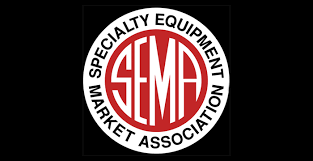SEMA: Supply Chain Issues Expected to Ease by End of 2022
SEMA Unchained
SEMA dropped its “SEMA Future Trends – January 2022” report and there may be smoother economic driving up ahead. The in-depth report, conducted by the SEMA Market Research Team, provides valuable insight and information to help the specialty-equipment industry make vital decisions and plan for the future.

The SEMA Future Trends report provides a detailed analysis of the industry’s most important issues and trends in 2022 and beyond. The report includes four primary sections:
Specialty-Equipment Industry Outlook
Overall, 2021 was a strong year for the industry amid high demand, with many companies reporting record growth. The specialty-equipment market should continue to grow in 2022, but at more muted levels, before returning to more normal (pre-pandemic) growth for 2023 and beyond. According to the report, nearly three-quarters (74%) of industry companies expect sales growth in 2022. Key impacts for the industry will be consumer demand, supply chain disruption, rising costs, and automotive sales.
Supply Chain Disruption
Over 80% of SEMA members report supply chain disturbances severely or moderately impacting their business in 2021. Supply chain disruption will continue to be an issue in 2022, but the worst is likely behind us. SEMA Market Research projects that most issues should improve to more normal levels by the end of 2022. Prices are likely to remain somewhat elevated for longer, however, likely into 2023. Product shortages, shipping and transport delays, and higher rates (shipping container rates are up 400% compared to October 2019), along with elevated input and commodity prices (steel is up 262% from October 2019), will be factors to watch in the automotive market.
U.S. Economic Outlook
Despite ongoing uncertainty, 2021 was a strong year for the U.S. economy amid record demand and consumer spending. Currently, the automotive industry has 2.91 million employees, only 4% below employment levels from before the pandemic in February 2020, making the automotive industry one of the best recoveries of any sector in the economy. The U.S. economy will continue to grow in 2022 but at lower levels than in 2021 due to significant headwinds. By 2023, however, the economy should be back to pre-pandemic growth levels. The Future Trends report explores the economy’s impact on the automotive aftermarket industry, with key factors including consumer spending and confidence, inflation, supply chain disruption, and labor shortages.
Changing Consumer Demographics
Consumers interact with the automotive aftermarket industry differently depending on their stage of life. Despite popular misconceptions, many young people care about their vehicles and are accessorizing. Even as the population changes, consumers under 40 will continue to make up the majority of specialty-equipment spending over the next decade. In fact, nearly 70% of specialty-equipment sales in 2020 came from consumers under the age of 40. This report takes an in-depth look at consumer spending and behavior by age and other demographic metrics.
The complete “SEMA Future Trends – January 2022” report is available to download for free here.
COMPANY DETAILS |

|
|
Company |
SEMA |
|
Website |
|
|
Connect |
   
|
|
Contact |
|
|
Address |
1575 Valley Vista Drive |
|
Diamond Bar, CA 91765 |
ABOUT SEMA®
SEMA, the Specialty Equipment Market Association founded in 1963, represents the $39.2 billion specialty automotive industry. The industry provides appearance, performance, comfort, convenience and technology products for passenger and recreational vehicles. Association resources include market research, legislative advocacy, training and product development support, as well as leading trade shows such as the SEMA Show in Las Vegas, NV, and the Performance Racing Industry (PRI) Trade Show in Indianapolis, IN. For more information, visit www.sema.org, www.semashow.com or www.performanceracing.com.



